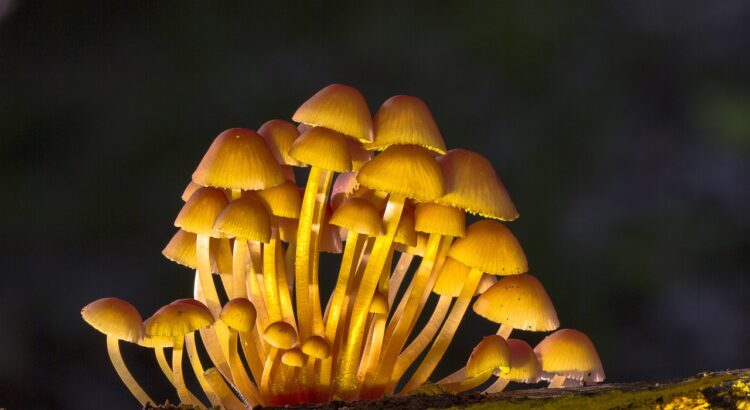Magic mushrooms, known for their powerful effects, can help release the heavy burdens of guilt, resentment, and dishonesty. These emotions usually hold people back, which makes it hard to heal and grow. Many get stuck in patterns that prevent them from connecting with others and themselves.
A recent study with 16 participants explored how psilocybin can break through these emotional blocks. It focused on how psychedelic-assisted therapy can promote emotional breakthroughs, honesty, and forgiveness.
Let’s explore how psilocybin treatment helps you face tough emotions, heal from past pain, and find a new sense of well-being. This could change the way we approach healing and personal growth.
Emotional Struggles People Face Before Therapy
Many people carry heavy emotions that prevent them from moving forward in life. More than one in four (28%) Canadians report that their mental health symptoms affect their daily functioning, showing how widespread these struggles are.
Guilt, Resentment, and Dishonesty
Guilt stems from regrets or mistakes. They weigh down self-worth and cause anxiety or depression. Resentment grows from past wrongs or injustices, which creates bitterness and damaging relationships. Both keep people stuck in the past and hinder growth.
Dishonesty commonly arises from fear—fear of judgment or facing uncomfortable truths. People may hide their true feelings, avoid difficult conversations, or deceive themselves, which blocks self-awareness and authentic connections with others.
The Impact of Mental Health Struggles
Over one-third of Canadians report that mental health symptoms disrupt various aspects of their lives. 40% say it affects their work or school, 33% experience disruptions in social or leisure activities, and 36% struggle with family or home life. Mental health struggles can even lead to individuals missing work or school, with 11% of students and workers reporting that they’ve missed time in the past week due to mental health issues.
Therapy helps break these blocks. Individuals can confront these emotions, gain clarity, and find forgiveness through this.
The Study Overview – Psilocybin-Assisted Therapy
Psilocybin-assisted therapy uses shrooms to help individuals explore emotions and heal from past traumas. Guided by trained therapists, participants confront emotions in a controlled setting.
Study Participants
The study included 16 participants, 8 from the Netherlands and 8 from Mexico. They attended retreats lasting 3-7 days and participated in up to 3 psychedelic ceremonies. The median time since the retreats was 6 months, and the group’s average age was 45. Of the individuals involved, 9 identified as female and 7 as male. Most of them (13 out of 16) had no religious affiliation, and nearly all had completed graduate or postgraduate education.
Therapeutic Process
During the treatment, participants faced challenging emotional experiences, such as past traumas, grief, and anxiety. Many reported feeling physical distress during the sessions, yet despite the difficult moments, they also experienced significant breakthroughs.
They used several introspective coping strategies, such as accepting and observing their feelings, practicing self-talk, and questioning their emotions. They also engaged in deep breathing, movement, and sensory interaction with their surroundings to manage the intensity of the experience.
Results
The therapy aimed to foster increased honesty, forgiveness, and healing. Although they faced some distressing emotions, many saw improvements in relationships, greater forgiveness, and enhanced honesty. The treatment helped them confront their struggles and achieve lasting changes.
Transformative Experiences of Participants
Many shared how the treatment allowed them to face their emotions honestly. Some described how the sessions gave them a fresh perspective on past experiences, which allowed them to release long-held grudges.
Forgiveness emerged as a key benefit of the treatment. Many found that psilocybin helped them forgive both others and themselves.
The treatment made them see their situations more empathetically, which makes forgiving and moving on from the past easier.
Coping Strategies
To handle difficult moments during treatment, participants used several coping strategies.
- Inner Responses: These included self-talk, acceptance, and meaning-making. For example, they would tell themselves they could handle the experience or make sense of their pain.
- Embodied Practices: They used intentional breathing, physical movement, and sensory engagement to stay grounded and calm.
- Social Strategies: Some sought support from others, while others chose to avoid social interaction to process their emotions alone.
- Facilitator Responses: Therapists were important in offering physical touch, listening, and reassuring during tough moments.
Here are the coping strategies used by participants:
| Theme | Key Strategies | Examples from Participants |
| Inner Responses | Self-talk, Acceptance, Meaning-making | “I told myself, ‘I can do this’”; “I felt all the suffering in my body, not just my own.” |
| Embodied Practices | Breathing, Movement, Sensory Engagement | “I focused on my breathing to stay grounded”; “I needed to move to help with nausea.” |
| Social Strategies | Avoiding Social Interaction, Asking for Help | “I avoided others because I couldn’t express the right emotions”; “I asked for help.” |
| Facilitator Support | Physical Touch, Listening, Reassurance | “The facilitator held my hand and helped me breathe”; “The guide reassured me I was safe.” |
These strategies highlight the deep emotional changes they experienced, showing how psilocybin treatment helped them achieve healing and personal growth. Its success depended largely on the supportive relationship between the therapist and participant, which has been shown to improve mental health outcomes.
Considerations for Psychedelic-Assisted Therapy
This can bring up intense emotions or memories that might be overwhelming. Some may feel temporary distress, like anxiety or discomfort, as they process difficult experiences. Nausea, dizziness, and other mild side effects can also happen. It’s important to be prepared for these feelings, knowing you’re part of the healing process.
Psilocybin therapy isn’t suitable for everyone. People with certain mental health conditions, like schizophrenia, or those with a history of substance abuse may not be good candidates. You need to undergo a thorough assessment by a healthcare professional to make sure the treatment is right for them.
16 Trips, One Truth
Could magic mushrooms unlock a more honest, forgiving, and emotionally healthy world? The possibilities are just beginning to unfold at Zoomies Canada.
If you’re curious about how this treatment can help, take the next step in your healing journey. It may provide the breakthrough you’ve sought for emotional well-being and growth.
Frequently Asked Questions
How do I know if I’ve taken too much magic mushrooms?
If you’ve taken too much magic mushrooms, you may feel:
- Overwhelmed or fearful.
- Reality may feel distorted, which makes you feel lost.
- Stomach upset could become intense.
- Vivid or disturbing visuals can become overwhelming.
- You may struggle with movement or coordination.
- Increased heart rate, sweating, or dizziness can occur.
If you experience any of these, stay calm and hydrate.
How do I know if I’m ready for a psilocybin trip?
To know if you’re ready for a psilocybin trip, check if you’re in a stable mental state and feeling positive. Have clear intentions, whether you’re seeking self-exploration, healing, or creativity. Make sure you’re in a safe, comfortable environment and have a trusted trip sitter nearby.
Be ready to let go of control and embrace the experience, even if it gets challenging. Also, ensure you’re in good physical health and free from any major conditions. If all these factors align, you’ll likely have a positive experience.
Can I combine magic mushrooms with other psychedelics for a stronger experience?
You can mix magic mushrooms with other psychedelics, but it’s risky and not recommended. Combining psilocybin with LSD, MDMA, or DMT can intensify the effects and make the experience unpredictable. This might overwhelm your senses, increase anxiety, or make the trip harder to manage. Each substance affects your brain differently, and their interactions can be unpredictable. If you combine them, use low doses, stay in a safe environment, and have a trusted trip sitter nearby.










